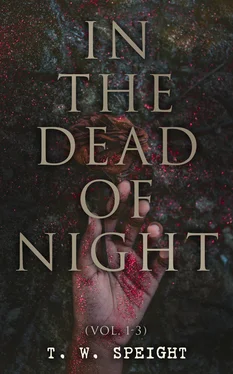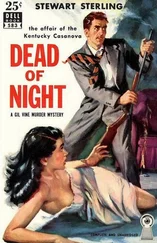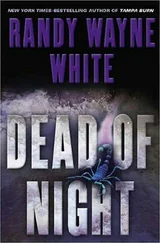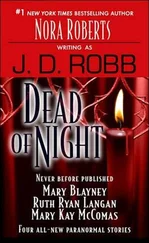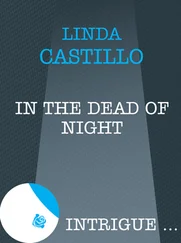T. W. Speight - In the Dead of Night (Vol. 1-3)
Здесь есть возможность читать онлайн «T. W. Speight - In the Dead of Night (Vol. 1-3)» — ознакомительный отрывок электронной книги совершенно бесплатно, а после прочтения отрывка купить полную версию. В некоторых случаях можно слушать аудио, скачать через торрент в формате fb2 и присутствует краткое содержание. Жанр: unrecognised, на английском языке. Описание произведения, (предисловие) а так же отзывы посетителей доступны на портале библиотеки ЛибКат.
- Название:In the Dead of Night (Vol. 1-3)
- Автор:
- Жанр:
- Год:неизвестен
- ISBN:нет данных
- Рейтинг книги:5 / 5. Голосов: 1
-
Избранное:Добавить в избранное
- Отзывы:
-
Ваша оценка:
- 100
- 1
- 2
- 3
- 4
- 5
In the Dead of Night (Vol. 1-3): краткое содержание, описание и аннотация
Предлагаем к чтению аннотацию, описание, краткое содержание или предисловие (зависит от того, что написал сам автор книги «In the Dead of Night (Vol. 1-3)»). Если вы не нашли необходимую информацию о книге — напишите в комментариях, мы постараемся отыскать её.
In the Dead of Night (Vol. 1-3) — читать онлайн ознакомительный отрывок
Ниже представлен текст книги, разбитый по страницам. Система сохранения места последней прочитанной страницы, позволяет с удобством читать онлайн бесплатно книгу «In the Dead of Night (Vol. 1-3)», без необходимости каждый раз заново искать на чём Вы остановились. Поставьте закладку, и сможете в любой момент перейти на страницу, на которой закончили чтение.
Интервал:
Закладка:
But the little closet or cupboard in the bedroom had still to be considered. It was nothing more than a small square opening in the wall; and, like the staircase, it was hidden behind the panelling, and secured still further by means of a secret spring. It was evident that the late Mr. St. George had known the secret of the cupboard, and had used the place as a safe depository for money and other valuables. It was equally certain that this latter fact must have been well known to Lionel's assailant; and there could be no doubt that the object of the midnight raid had been to rifle the cupboard of its contents. Some testimony as to the quality of those contents had been unavoidably left behind in the hurry of flight. Three or four small diamonds, and a couple of sovereigns of recent coinage, were found scattered on the floor: but as to the further value of the property stolen there were no means of judging.
Lionel had no reason for suspecting any of the people immediately about him, nor did such a thought ever find a lodging in his mind. The more he considered the matter, the more certain he felt that the man of whom he had caught a glimpse in the shrubbery was really the thief. But even granting such to be the case, the mystery was no nearer solution than before. Whoever the man might be, he had got clear away without leaving the slightest clue behind him by which he might be traced.
Lionel's first visit, when he was able to get out of doors again, was to a little cottage on the outskirts of Duxley, where lived an old man, Joseph Nixon by name, who had been body-servant to the late Mr. St. George, and to his father before him. Nixon was now living on a pension granted him by the family; and it seemed to Lionel that he would be more likely than any one else to have a knowledge of the hidden staircase, and the cupboard in the bedroom wall. He found the old man infirm in body but clear in mind. Yes, he said, in answer to Lionel's inquiries, he knew all about the staircase in the wall, and the little closet behind the panelling in his old master's bedroom. Mr. St. George, who was somewhat peculiar in his ways, was in the habit of keeping a considerable amount of ready money in the house, and used the cupboard as a secure place of deposit, known to himself and Nixon alone.
"But was there nothing besides money ever kept there?" asked Lionel.
"Yes, sir; there was a diamond necklace, and some other things as well," answered Nixon.
"It was rather a strange place in which to keep a diamond necklace, was it not?"
"Well, sir, this is how it was. When Mr. Arthur St. George was a young man, he was engaged to be married to a handsome young lady. The wedding day was fixed, and everything ready, when he made her a present of a diamond necklace. She wore it once only--at a grand ball to which he took her. Next day she was taken ill; a week later she was dead. Her friends sent back the necklace, and my master seemed as if he could never bear to part from it after that time. Many and many a time I've known him to sleep with it under his pillow."
Here was a page of romance out of his uncle's life that was quite fresh to Lionel.
"He was one o' the old-fashioned sort of lovers, was Mr. St. George," added Nixon. "He didn't know what it was to change."
"And are you certain that my uncle and yourself were the only two people who knew of the existence of the staircase and the cupboard? Try to remember. Think carefully before you answer."
"It's not in my knowledge," answered the old man, slowly, "that anybody knew about either of them places but my master and myself. Unless, maybe----"
"Yes--unless what?"
"Unless Mr. Kester St. George happened to know about them."
"And do you really think that my cousin Kester does know that there are two such places in existence?" asked Lionel after a pause.
"Now I come to think of it, sir, he does know about the cupboard. Going suddenly into the bedroom one day, without knowing that he was there, I found him standing by the cupboard, with the door open, and the diamond necklace in his hand. It was not my place to say anything, and it seemed no more than likely, at that time, that some day the necklace would be his own property. But, as regards the staircase, sir, I don't know as Mr. Kester was ever told about that."
There was nothing more to be learned, so Lionel took a kindly leave of the old man, who seemed as if he could not sufficiently express his delight at not having been forgotten by "the new master."
Lionel neither could nor would believe that Kester had had any hand in the midnight robbery. Nevertheless, he sent word next day to the chief constable of Duxley not to proceed any further with his investigation of the affair. In his letters to Edith he had been careful not to mention the matter in any way. It would only have frightened her, and could have done no possible good.
As soon as he was thoroughly recovered he set out for Paris. He had not seen Edith for several weeks, and longer separation was unendurable.
One morning there came a letter to Edith, in which Lionel stated that he should be in Paris twelve hours after the receipt of it. What a day of joyful expectation was that! Edith could neither read, nor work, nor even sit quietly and do nothing. All she could do was to wander absently from room to room, touching a few notes on the piano now and again, or gaze dreamily out of the windows, or feed the noisy troop of sparrows that assembled daily on the window-sill for their accustomed bounty. She sent out for a Railway Guide that she might be enabled to follow Lionel step by step on his journey. "Now he is at Dover," she said to herself. A little while later, "Now the steamer is nearly at Calais." Later still, "Now he has left Calais. Half his journey is over. In six more hours he will be here."
"Come and have some tea, child," said Mrs. Garside. "I declare you look quite worn and anxious. Mr. Dering will think I've been working you to death."
Mrs. Garside was very glad on her own account that Lionel was coming The forms and processes of French law in connection with the property left her by her sister troubled her exceedingly. She knew that she could count on Lionel's good-natured assistance in extricating her from sundry perplexities into which she had fallen.
How slowly the hours went by; as hours, when they are watched, always seem to do! Mrs. Garside began to prophesy. "Perhaps the train will be delayed," she said. "Perhaps he will think it too late to call. Perhaps we shall not see him till midday to-morrow." To all which Edith could only respond with a doleful "Perhaps."
"But for all that," said Mrs. Garside, "we will have dinner ready for him to the minute. Men are never good-tempered when they are hungry. Always bear that little fact in mind, Edith, when you get married."
So a choice little repast was prepared, and Edith went out and bought some flowers with which to decorate the table; then the candles were lighted; and after that they could only sit and wait.
By-and-by a cab came rattling into the courtyard. Then there came the sound of welcome footsteps on the stairs, and next moment Lionel was with them.
What two happy hours were those before the time came for them to bid each other good-night! But, then, what a little suffices to make us happy when we are in love! Kind-hearted Mrs. Garside was happy in the happiness of Edith, and in the freshness and change which Lionel's welcome arrival brought with it. Edith and Lionel asked nothing more for the time being than to be able to see each other, and speak to each other, and to spell out that silent language of the eyes which has often a meaning far more deep and heartfelt than any words can convey.
In Paris that year the spring seemed to come earlier than usual. Already the Bois was beginning to clothe itself in a mantle of tenderest green. The daylight hours were warm and bright; hardly a cloud was to be seen in the sky. All the gay world of Paris was on the qui vive. It was a splendid moving panorama, framed with flowers and softest buds just bursting into leaf. To the fancies of Edith and Lionel it almost seemed as if all this glamour and brightness had been devised by some kind fairy godmother for their especial behoof, simply because they were under love's sweet witchery, and that it would all vanish like a dream the moment they two should have quitted the scene. They spent hours in the Louvre looking at the pictures. They spent more hours on the pleasant Boulevards, jostled by troops of pleasure-seekers. But it is more than probable that, as sightseers, they saw very little indeed. They moved like dreamers in the midst of a crowd, like denizens of a more etherealized world, who breathed, as of right, a finer atmosphere, and in whose veins flowed the only true elixir of life. It was a season of happiness, pure and unalloyed. They saw nothing--not even in their dreams had they any prevision--of the huge black cloud whose edge already touched the horizon, whose sable folds would soon shut out the sunshine and the flowers, but whose thunders would smite in vain the strong pure rock of their mutual love.
Читать дальшеИнтервал:
Закладка:
Похожие книги на «In the Dead of Night (Vol. 1-3)»
Представляем Вашему вниманию похожие книги на «In the Dead of Night (Vol. 1-3)» списком для выбора. Мы отобрали схожую по названию и смыслу литературу в надежде предоставить читателям больше вариантов отыскать новые, интересные, ещё непрочитанные произведения.
Обсуждение, отзывы о книге «In the Dead of Night (Vol. 1-3)» и просто собственные мнения читателей. Оставьте ваши комментарии, напишите, что Вы думаете о произведении, его смысле или главных героях. Укажите что конкретно понравилось, а что нет, и почему Вы так считаете.
